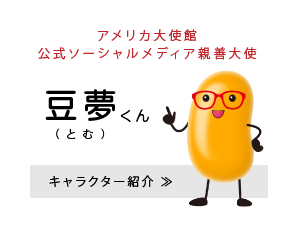国務省出版物
民主主義の原則 – 人権
すべての人間は、何ものにも侵されない権利を持って生まれる。この人権は、人々に尊厳ある生活を追求する権利を与える。いかなる政府も人権を付与することはできないが、そうした権利を保護しなければならない。正義、寛容、尊厳、尊敬、法規範の上に築かれた自由は、民族、宗教、政治的所属団体、社会的地位に関係なく、人々が基本的権利を追求することを可能にする。独裁政治は人権を拒否するが、自由な社会は常に人権の実現を目指す。
様々な人権は、相互に依存し合っており、分割できないものである。それらは、社会・政治・経済問題など、人間の暮らしの無数の側面に及んでいる。最も広く認められている人権には、次のようなものがある。
- すべての人々は、独自の意見を形成し、それを個人で、または平和的集会で発表する権利を持つべきである。自由社会は、人々が数々の争点について意見を交換する「発想の市場」を創り出す。
- すべての人々は、政府に参加する権利を持つべきである。政府は、人権を保護する法律を作成すべきである。そうした法律を、司法制度は国民の間で、平等に施行する。
- 支配政党に反対する者であろうと、民族的少数派であろうと、あるいは普通の犯罪者であろうと、恣意的な逮捕、拘留、拷問からの自由は、基本的な人権である。専門の警察組織は、国家の法律を執行するに当たり、すべての市民を尊重する。
- 民族的に多様な国家では、宗教的・民族的少数派は、多数派住民からの仕返しを恐れることなく、自由にそれぞれの言語を使用し、伝統を維持するべきである。政府は、多数派の意思を尊重する一方で、少数派の権利を認めなければならない。
- すべての人々は、仕事をし、生計を立て、家族を養う機会を持つべきである。
- 子どもは、特別な保護を受けるに値する。子どもは、少なくとも初等教育と、適切な栄養、保健医療を与えられるべきである。
- 人権を維持するために、いかなる自由社会の市民も油断してはならない。様々な参加型活動を通じて市民の責任を果たすことが、政府が国民に対して説明責任を果たすことにつながる。自由な諸国は一体となって、人権の保護に向けて努力することを誓っている。これらの諸国は、人権に関する数々の国際条約や盟約を通じて、その誓約を正式な形で表している。
Human Rights
(The following one-pager is taken from the U.S. Department of State publication Principles of Democracy.)
All human beings are born with inalienable rights. These human rights empower people to pursue lives of dignity – thus, no government can bestow them but all governments should protect them. Freedom, built on a foundation of justice, tolerance, dignity, and respect – regardless of ethnicity, religion, political association, or social standing – allows people to pursue these fundamental rights. Whereas dictatorships deny human rights, free societies continually strive to attain them.
Human rights are interdependent and indivisible; they encompass myriad facets of human existence including social, political, and economic issues. Among the most commonly accepted are:
• All people should have the right to form their own opinions and express them individually or in peaceful assemblies. Free societies create a “marketplace of ideas” where people exchange their views on any number of issues.
• All people should have the right to participate in government. Governments should create laws that protect human rights while justice systems enforce those laws equally among the population.
• Freedom from arbitrary arrest, detention, and torture – whether one is an opponent of the ruling political party, an ethnic minority, or even a common criminal – is a basic human right. A professional police force respects all citizens as it enforces the laws of the nation.
• In ethnically diverse nations, religious and ethnic minorities should be free to use their language and maintain their traditions without fear of recrimination from the majority population. Governments should recognize the rights of minorities while respecting the will of the majority.
• All people should have the opportunity to work, earn a living, and support their families.
• Children deserve special protection. They should receive at least an elementary education, proper nutrition, and healthcare.
• To maintain human rights, citizens in any free society need to be vigilant. Citizen responsibility – through a variety of participatory activities – ensures that government remains accountable to the people. The family of free nations is committed to work toward protection of human rights. They formalize their commitment through a number of international treaties and covenants on human rights.




